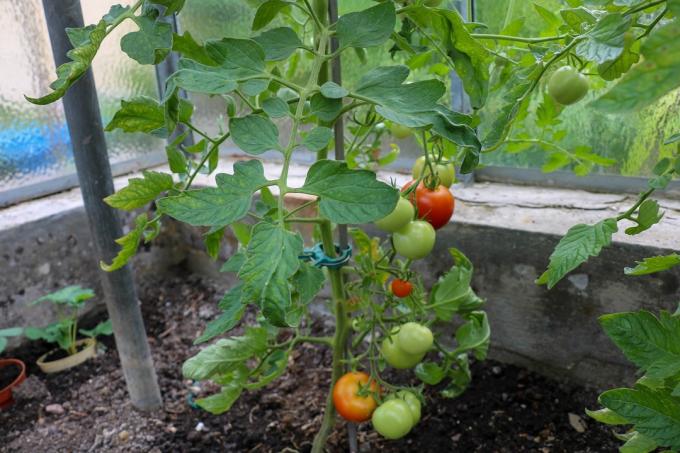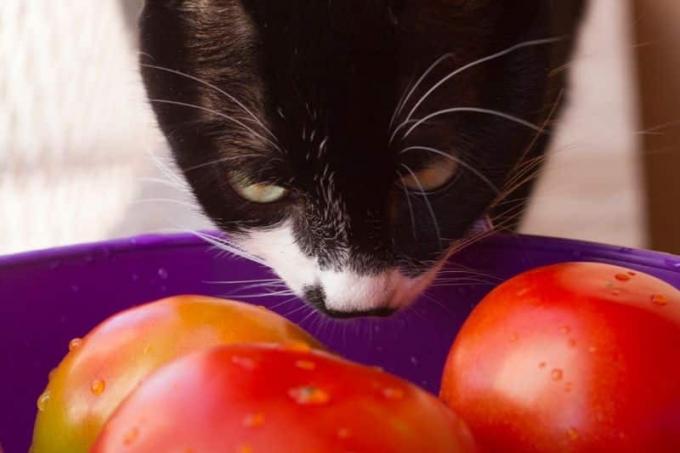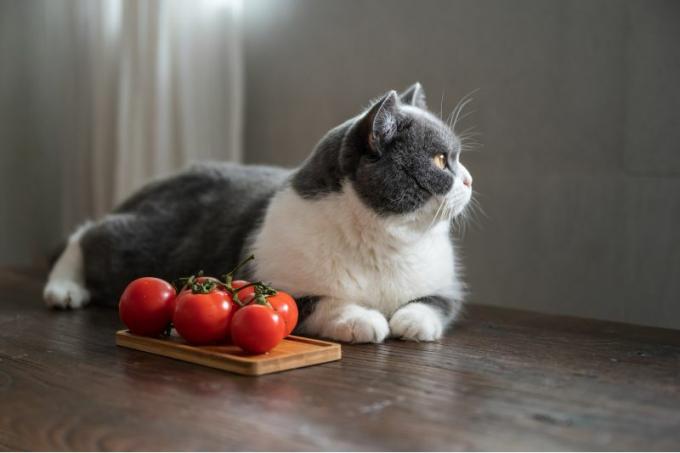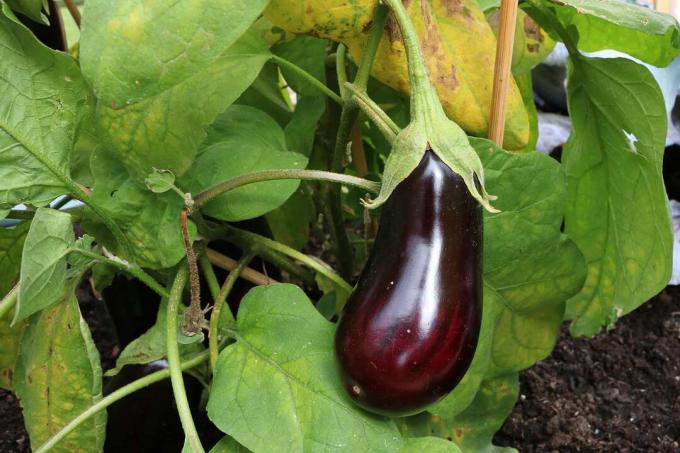
Tomato plants are considered easy-care plants for the garden and balcony. However, if cats are part of your household, you should be careful. Here's how to find out if the tomato plant is poisonous to cats.
In a nutshell
- Green parts of the plant are slightly toxic to cats
- Ripe fruits are harmless
- Symptoms of poisoning are nonspecific
- If you suspect poisoning, contact a veterinarian immediately
Table of contents
- Poisonous parts of plants
- Toxic main ingredients
- symptoms of poisoning
- First Aid Measures
- Related, poisonous plants
- frequently asked Questions
Poisonous parts of plants
Tomato plants (Solanum lycopersicum) and unripe fruits contain Solanum alkaloids that are toxic to cats. Therefore can
- all green plant parts,
- the yellow flowers as well
- the green (unripe) fruits

cause poisoning in animals. The toxicity classification is given as "slightly toxic". This means that symptoms of poisoning only appear when your house cat eats large amounts of the plant or herb. ate the unripe fruit. Nevertheless, you should avoid the cat having contact with the tomato plant, because as with all poisonous plants, the dose makes the poison with Solanum lypersicum.
Notice: Ripe tomatoes are non-toxic to cats. This also applies to green varieties when they are fully mature.
Toxic main ingredients
The risk of poisoning for cats comes from the following substances:
- alpha tomato
- Tetrasoid of tomatidine
- beta tomato
With a proportion of 0.2 to 1.2 percent, the content of these alkaloids in the herb is highest during the main flowering period. As the growing season of the tomato plant comes to an end, the alkaloid content decreases. Immature fruits contain 0.03 percent of the toxins. The solanum alkaloids are absent in ripe fruits.

Serotonin is another substance found in tomatoes. However, at 0.3 milligrams per 100 grams, the amount is extremely small. That's why cats have to eat huge amounts of tomatoes to show signs of poisoning.
symptoms of poisoning
If cats have poisoned themselves with a tomato plant, the following symptoms appear:
- excessive salivation (hypersalivation)
- loss of appetite
- severe gastrointestinal problems
- depression
- weakness
- dilated pupils
- slow heart rate
Since these poisoning symptoms are more or less non-specific, you should examine your tomato plant for traces of cats if you suspect it. If you catch the cat nibbling on the plant or unripe fruit, remove them from the cat's reach.
First Aid Measures
If cats show signs of poisoning, it is best for the animals if you do nothing but contact a veterinarian or an emergency veterinary clinic immediately. Bring the nibbled fruits and plant parts with you so that the veterinarian can take countermeasures as quickly as possible.

Notice: Do not try to make the cat vomit. Home remedies such as charcoal tablets or milk are also counterproductive in this case. However, it is allowed to carefully remove plant parts from the cat's mouth.
Related, poisonous plants
The tomato plant belongs to the plant genus Solanum of the Solanum family Nightshade family (Solanaceae). Since plants from the genus nightshade contain various alkaloids, they are classified as poisonous. The ripe fruits are usually an exception. The following ornamental and useful plants, which are highly poisonous, can be mentioned as examples:
- Eggplant (Solanum melongana)
- Potatoes (Solanum tuberosum)
- Coral shrub (Solanum pseudocapsicum)
- Black nightshade (Solanum nigrum): Unexplained toxicity of the berries
- Bittersweet nightshade (Solanum dulcamara)

frequently asked Questions
The risk of poisoning is always greater for kittens than for adult cats. On the one hand they weigh less and on the other hand they are more playful.
Since training measures for cats usually have little effect, you should block the animals' access to your tomato plant. Often it is enough to fence the plant with a trellis.
This is possible if there are still green parts of the plant on the fruit. That's why you should keep vine tomatoes and tomatoes with a stalk away from cats.
